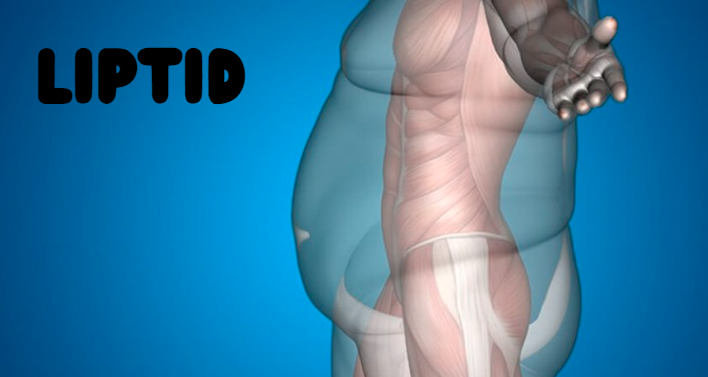Lipids, often referred to as fats, are essential organic compounds that perform numerous vital functions in the human body. They play a key role in energy storage, cell structure, and hormone production. When discussing lipids, people may sometimes come across the term “liptid.” In this article, we will explore what “liptid” refers to, break down the various categories and types of lipids, and examine their significant influence on health and overall well-being.
This comprehensive article will provide valuable insights into the multifaceted roles of lipids (or liptid) in the body, address common misconceptions, and offer practical tips for optimizing lipid-related health outcomes.
What Is Liptid? Decoding the Term
While “liptid” is not a common term in medical literature, it seems to be a misspelling or variation of “lipid.” Lipids are a broad group of naturally occurring molecules that include fats, oils, hormones, certain vitamins, and components of the cell membrane. Understanding lipids, or liptids as they are occasionally called, is crucial for managing your health because they influence many bodily processes, including metabolism and disease prevention.
Categories of Lipids
To grasp the significance of lipids, it’s important to understand the different categories that fall under this broad term. Lipids can be categorized into the following:
- Triglycerides
These are the most common type of fat in the human body. Triglycerides are composed of three fatty acids and a glycerol molecule. They are the main constituents of body fat in humans and animals as well as vegetable fat. Stored in fat cells, they serve as a long-term energy source. - Phospholipids
These are a major component of all cell membranes, forming lipid bilayers. They are critical to the structure and function of cell membranes, as they help control what enters and leaves the cell. - Sterols (Cholesterol)
Cholesterol, one of the most well-known sterols, is vital for the production of hormones such as estrogen, testosterone, and cortisol. While cholesterol has a bad reputation, it plays crucial roles in creating bile acids and vitamin D. - Fatty Acids
These include saturated, monounsaturated, and polyunsaturated fats. Each type of fatty acid has different effects on your health. For example, omega-3 fatty acids, found in fish oils, are known to reduce inflammation, while saturated fats are linked to heart disease when consumed in excess.
Functions of Liptid (Lipids) in the Human Body
Lipids are indispensable to several biological functions. Far beyond their association with body fat, they act as the building blocks of cell membranes and provide a dense source of energy. Let’s explore the critical roles lipids play in the human body.
1. Energy Storage
Lipids provide an efficient way for the body to store energy. One gram of fat contains 9 calories, more than twice the energy content of carbohydrates and proteins. When the body requires energy, lipids can be broken down to release fatty acids and glycerol, which can be metabolized to generate ATP (adenosine triphosphate), the energy currency of the cell.
2. Structural Components of Cell Membranes
Phospholipids and cholesterol are integral to the formation of cell membranes, creating a barrier that protects the cell’s contents and regulates the movement of substances in and out of the cell. This fluid structure, called the lipid bilayer, is essential for maintaining cell integrity and function.
3. Insulation and Protection
Lipids also function as insulation, helping to maintain body temperature by trapping heat in a layer of fat beneath the skin. They also cushion and protect vital organs like the kidneys and liver from physical damage.
4. Hormone Production
Cholesterol is a precursor to steroid hormones such as estrogen, progesterone, testosterone, and cortisol. Without lipids, the body would be unable to produce these critical hormones, which regulate metabolism, immune function, reproductive health, and the body’s response to stress.
5. Absorption of Fat-Soluble Vitamins
Lipids play an essential role in the absorption of fat-soluble vitamins (A, D, E, and K) that the body needs for numerous biological processes. Without adequate lipid intake, deficiencies in these vitamins can occur, leading to various health problems such as poor vision, weakened bones, and compromised immune function.
The Importance of a Balanced Diet in Liptid Management
While lipids (or liptids) are essential for health, maintaining a balance is crucial. Consuming too many lipids, especially the wrong kinds, can lead to health problems like obesity, cardiovascular disease, and metabolic disorders. However, not all lipids are created equal, and understanding the types of fats you consume can help optimize your health.
1. Saturated Fats
Found primarily in animal products (meat, dairy) and certain oils (coconut, palm), saturated fats are solid at room temperature. Consuming large amounts of these fats can raise LDL cholesterol levels (the “bad” cholesterol), increasing the risk of heart disease. It’s recommended that saturated fats make up no more than 10% of your daily caloric intake.
2. Unsaturated Fats
These are considered “good” fats and are found in foods such as avocados, nuts, seeds, and olive oil. Unsaturated fats are liquid at room temperature and can help lower LDL cholesterol and reduce inflammation in the body. They are further classified into monounsaturated and polyunsaturated fats, both of which are beneficial for heart health.
3. Trans Fats
Trans fats are the worst type of fats for your health, as they increase LDL cholesterol and decrease HDL cholesterol (the “good” cholesterol). They are often found in processed foods and should be avoided as much as possible. Many countries, including the U.S., have implemented regulations to reduce the presence of trans fats in food products.
Liptid and Heart Health: How Lipids Influence Cardiovascular Disease
Lipids play a significant role in heart health, with imbalances often contributing to the development of cardiovascular diseases such as atherosclerosis, heart attacks, and strokes. Understanding how different types of lipids affect your heart can help in preventing these conditions.
1. Cholesterol and Its Impact
While cholesterol is necessary for various bodily functions, high levels of LDL cholesterol can lead to plaque buildup in the arteries, restricting blood flow and increasing the risk of heart disease. HDL cholesterol, on the other hand, helps remove excess cholesterol from the bloodstream, thus protecting against cardiovascular problems.
2. The Role of Triglycerides in Heart Health
High levels of triglycerides in the blood can also contribute to heart disease. Elevated triglycerides are often a sign of other metabolic issues, such as obesity, insulin resistance, or type 2 diabetes, all of which increase the risk of heart disease.
3. Omega-3 Fatty Acids: A Heart-Healthy Choice
Omega-3 fatty acids, a type of polyunsaturated fat, have been shown to reduce inflammation, lower blood pressure, and decrease the risk of heart disease. Regular consumption of foods rich in omega-3s, such as fatty fish (salmon, mackerel), walnuts, and flaxseeds, can help improve heart health.
Liptid and Brain Function: The Connection Between Lipids and Cognitive Health
Lipids are not only important for physical health but also for cognitive function. The brain is composed of about 60% fat, making lipids crucial for proper brain development and functioning.
1. Omega-3 and Cognitive Performance
Omega-3 fatty acids, particularly DHA (docosahexaenoic acid), are vital for brain health. They are involved in maintaining the structure and function of brain cells, supporting cognitive processes such as memory and learning. Studies have shown that a deficiency in omega-3s is linked to cognitive decline and an increased risk of neurodegenerative diseases like Alzheimer’s.
2. Cholesterol and the Brain
Although cholesterol is often considered harmful in the context of heart disease, it is essential for brain health. The brain contains a significant amount of cholesterol, which is necessary for the formation of synapses and the transmission of signals between neurons.
Lipid Disorders: Understanding Liptid-Related Conditions
Imbalances in lipid levels can lead to various health problems. Some common lipid-related disorders include:
1. Hyperlipidemia
This condition is characterized by elevated levels of lipids in the blood, particularly cholesterol and triglycerides. Hyperlipidemia increases the risk of cardiovascular diseases, including heart attack and stroke.
2. Atherosclerosis
Atherosclerosis is a condition where cholesterol and other fatty substances build up in the walls of arteries, forming plaques that restrict blood flow. This can lead to serious health problems, including heart disease, stroke, and peripheral artery disease.
3. Metabolic Syndrome
Metabolic syndrome is a cluster of conditions, including high blood pressure, high blood sugar, excess body fat around the waist, and abnormal cholesterol or triglyceride levels. Having metabolic syndrome increases the risk of heart disease, stroke, and diabetes.
4. Hypolipidemia
Unlike hyperlipidemia, hypolipidemia refers to abnormally low levels of lipids in the blood. While less common, this condition can also lead to health problems, such as malnutrition, hormonal imbalances, and poor cell membrane function.
Practical Tips for Maintaining Healthy Liptid Levels
Maintaining healthy lipid levels is critical for overall well-being. Here are some practical tips to help manage your lipid profile:
1. Adopt a Heart-Healthy Diet
Focus on consuming whole, nutrient-dense foods that support heart health. Include plenty of fruits, vegetables, whole grains, and lean proteins, while limiting processed foods, sugary beverages, and high-fat animal products.
2. Incorporate Healthy Fats
Replace saturated and trans fats with healthy fats from sources like olive oil, nuts, seeds, avocados, and fatty fish. These fats can help lower LDL cholesterol and promote overall heart health.
3. Exercise Regularly
Physical activity helps lower triglycerides and increase HDL cholesterol. Aim for at least 150 minutes of moderate-intensity exercise per week, such as brisk walking, cycling, or swimming.
4. Maintain a Healthy Weight
Being overweight or obese can contribute to elevated lipid levels and increase the risk of heart disease. Losing even a small amount of weight can have a significant impact on your lipid profile.
5. Limit Alcohol Intake
Excessive alcohol consumption can raise triglyceride levels and contribute to weight gain. If you drink, do so in moderation—up to one drink per day for women and two drinks per day for men.
FAQs About Liptid
Q1: What are the main types of lipids found in the body?
The main types of lipids include triglycerides, phospholipids, sterols (like cholesterol), and fatty acids. Each type plays a unique role in the body’s overall functioning.
Q2: Is cholesterol good or bad?
Cholesterol is essential for hormone production and cell membrane structure, but high levels of LDL cholesterol can contribute to heart disease. HDL cholesterol, however, is beneficial and helps remove excess cholesterol from the bloodstream.
Q3: What foods contain healthy lipids?
Foods rich in healthy lipids include avocados, nuts, seeds, fatty fish (like salmon), olive oil, and flaxseeds. These foods are high in unsaturated fats, which support heart health and reduce inflammation.
Q4: How can I lower my cholesterol naturally?
You can lower cholesterol by eating a heart-healthy diet, exercising regularly, losing excess weight, quitting smoking, and limiting alcohol intake. Foods high in fiber, such as oats and legumes, can also help reduce cholesterol.
Q5: What are omega-3 fatty acids, and why are they important?
Omega-3 fatty acids are a type of polyunsaturated fat that has numerous health benefits, including reducing inflammation, supporting brain function, and improving heart health. They are found in fatty fish, walnuts, and flaxseeds.
Conclusion
Lipids, or “liptid” as some might refer to them, are essential to our overall health. They play vital roles in energy storage, cellular function, hormone production, and more. Understanding the various types of lipids and how they impact the body is crucial for maintaining optimal health. By focusing on a balanced diet rich in healthy fats and adopting heart-healthy habits, you can support healthy lipid levels and reduce the risk of related diseases.
Through a better understanding of lipids, or liptid, and making informed choices about your lifestyle and diet, you can enhance your well-being and improve your quality of life.


No responses yet